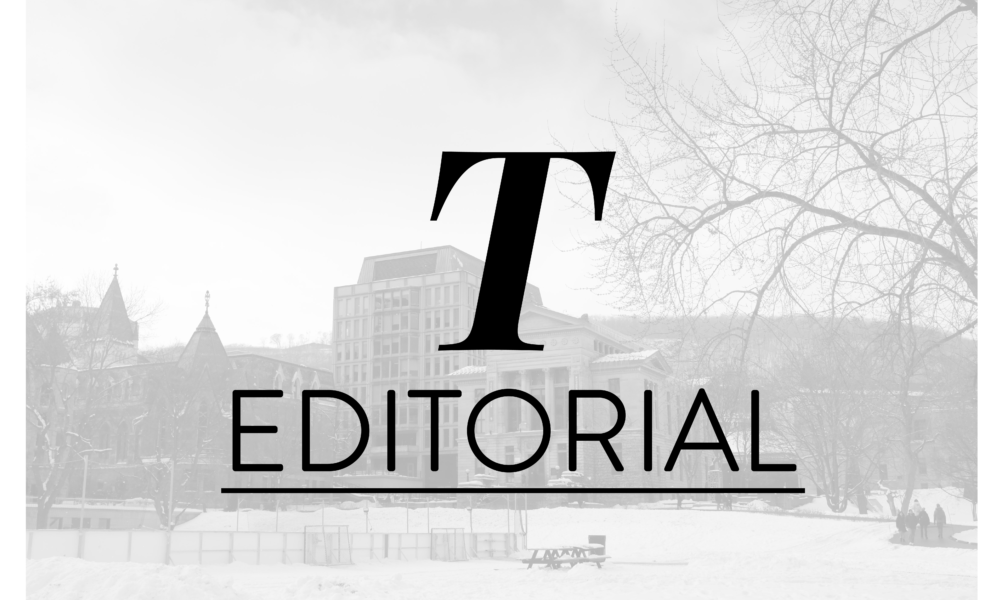A recent study revealed that discomfort among Quebec youth regarding friendships with 2SLGBTQIA+ individuals has doubled since 2017, highlighting an alarming rise in anti-2SLGBTQIA+ attitudes in the province. A broader, growing shift toward conservatism has fueled this surge in intolerance and serves as a threat to the safety of 2SLGBTQIA+ people. Homophobic microaggressions and casual transphobia are increasingly common, often perpetuated by online “alpha male” content creators and their “anti-woke” rhetoric. The corresponding resurgence of traditionalism, a trend rooted in modern economic instability and nostalgia for the rigid norms of the past, scapegoats 2SLGBTQIA+ individuals and makes meaningful discourse on their rights—in Quebec and abroad—taboo.
At McGill, the growing momentum of conservatism and anti-2SLGBTQIA+ attitudes has coincided dangerously with the temporary leave of Dr. Hashana Perera, who is reportedly the only doctor at McGill’s Student Wellness Hub (SWH) willing to provide Hormone Replacement Therapy (HRT). HRT is a critical form of care that allows individuals to align their physical selves with their gender identity. Perera has also identified gaps in support for transgender students at the university, making her presence crucial to the well-being of 2SLGBTQIA+ individuals. In her absence, students seeking HRT face referral to the Hygea endocrinology clinic, where wait times can be up to a year long.
The fact that gender-affirming care at McGill relies on a single doctor is particularly egregious, as it creates a precarious system where a single practitioner’s leave disrupts access for the entire student body. Furthermore, even when such staff are available, McGill’s health insurance policy requires 2SLGBTQIA+ students to jump through unnecessary hoops to access care for treatments, even outside of HRT. For example, diagnosed gender dysphoria is a prerequisite for most gender-affirming care, but few doctors are willing to provide this diagnosis.
The lack of urgency and support, compounded by an overloaded SWH, forces competition for appointments, exacerbating financial strain and hindering students’ ability to engage fully with their communities. Even once students are finally able to access treatments, the costs—including those of repeated HRT or gender-affirming surgery—are not fully covered by insurance.
The fragility of the gender-affirming healthcare system reflects a lack of institutional commitment to equity and inclusion. To truly serve its 2SLGBTQIA+ students, McGill must do more than vocalize its support; it must listen to organizations advocating for gender-affirming care and invest in training more practitioners, expanding healthcare access, and addressing systemic barriers across the board. The university must enforce protections against transphobia, deadnaming, and discrimination to create an environment where all students feel supported.
McGill’s Public Health Masters program also plays a critical role in this process in their duty to prepare future healthcare professionals to work inclusively and effectively with diverse populations. Students in this program should be trained not only to provide sensitive care but also to identify and challenge implicit and explicit biases that uniquely impact the health of marginalized communities. Courses on medical racism, transphobia, homophobia, and implicit bias should be core components of the curriculum, even starting at the undergraduate level. Healthcare students must be taught how to engage with patients in vulnerable moments and to advocate for policies that ensure equitable care. This interdisciplinary approach, which combines technical skills with social and ethical considerations, will better equip future healthcare professionals to address the complex needs of 2SLGBTQIA+ individuals.
Gender-affirming care is not a luxury; it is a right that can save lives, allowing students to feel like themselves and succeed in school and beyond. Until the university prioritizes employing more doctors capable of offering gender-affirming care, offering further guidance for accessing this care, and expanding insurance coverage to these treatments and procedures, the SWH will remain an unreliable and inequitable healthcare provider. This moment calls for collective action to address the barriers faced by 2SLGBTQIA+ communities and to counter rising anti-2SLGBTQIA+ biases through education and advocacy. By fostering a healthcare system and campus culture rooted in inclusion, awareness, and solidarity, McGill can combat rising intolerance and, in turn, pioneer meaningful change for its 2SLGBTQIA+ community, and that which extends beyond McGill’s gates.









